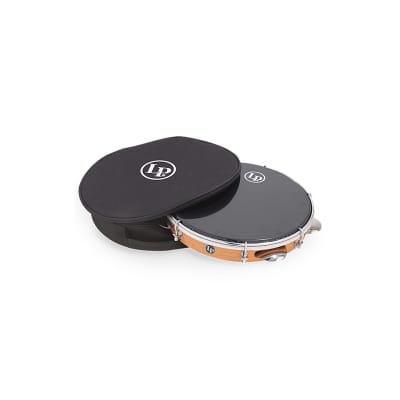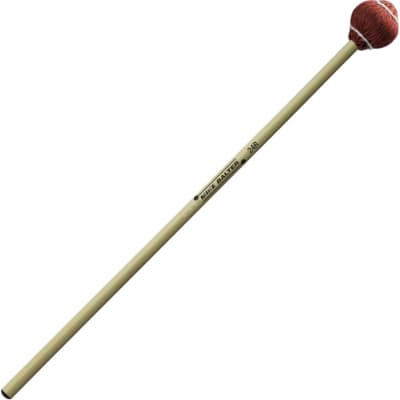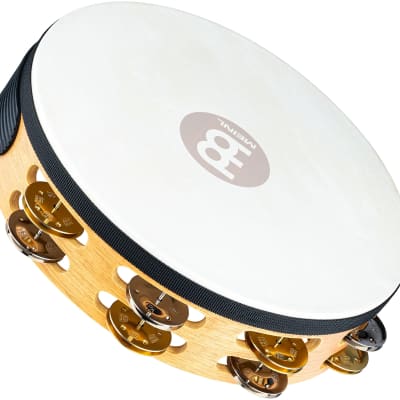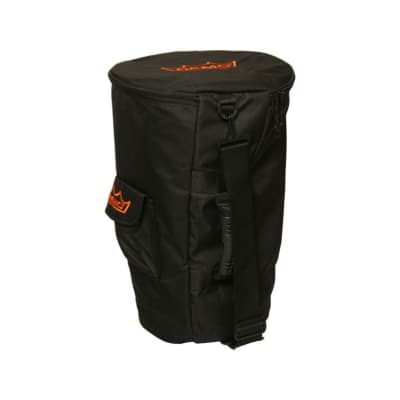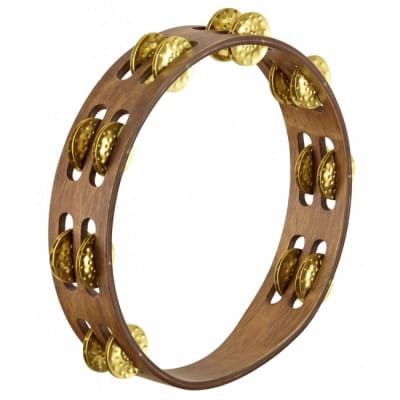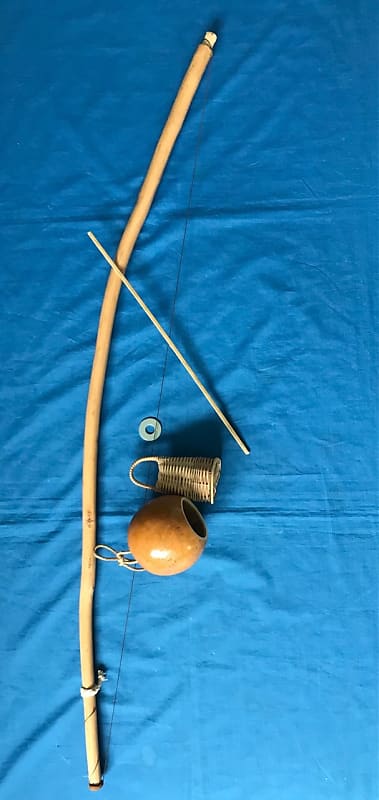

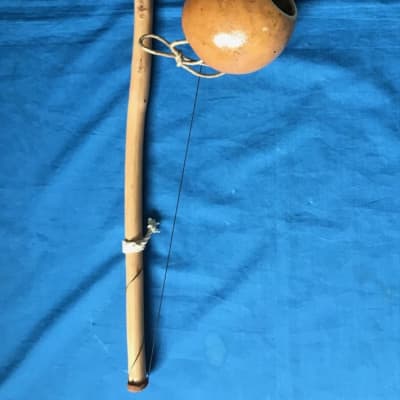
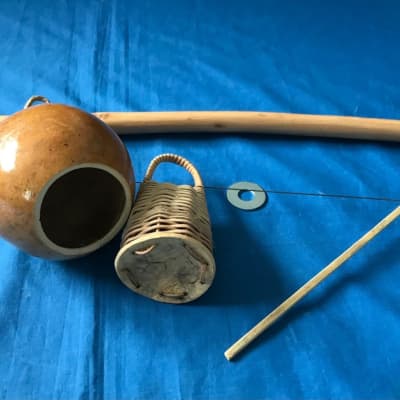
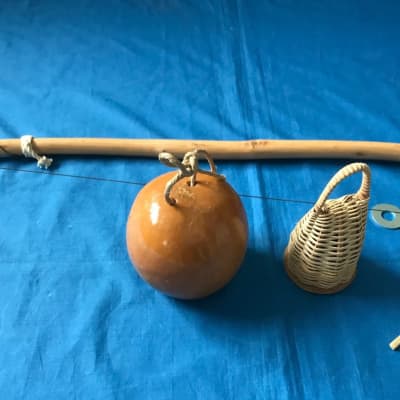
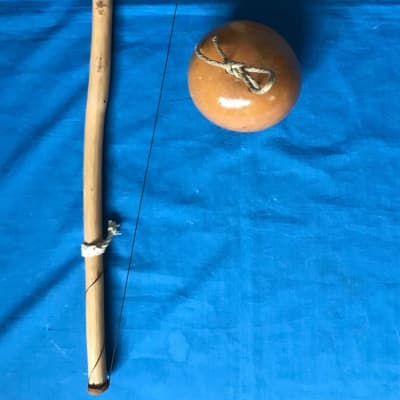
45" PROFESSIONAL JUVENILE BERIMBAU TO PLAY BRAZILIAN CAPOEIRA
HANDMADE IN NATURAL BIRIBA
NATURAL CABACA GOURD AND CAXIXI
CABACA SIZE: 14.5" CIRCUMFERENCE X 6" HEIGHT
BERIMBAU WILL BE SHIPPED IN 2 BOXES TO
BETTER PROTECT THE CABACA AND CAXIXI
HOW TO PLAY A BERIMBAU:
BERIMBAU : ONE STRING MUSICAL INSTRUMENT
TO PLAY BRAZILIAN CAPOEIRA
The berimbau is a single-string percussion instrument, a musical bow, from Brazil. Originally from Africa where it receives different names, the berimbau was eventually incorporated into the practice of the Afro-Brazilian martial art capoeira, the berimbau (the soul of capoeira) leads the capoeiristas movement in the roda—the faster the berimbau is playing the faster the capoeirista moves in the game. The instrument is known for being the subject matter of a popular song by Brazilian guitarist Baden Powell, with lyrics by Vinicius de Moraes.
Berimbau Parts
Making the three sounds of a berimbau. A: buzz sound. B: high sound. C: open string sound.
The berimbau, as played for capoeira, basically has three sounds: the open string sound, the high sound, and the buzz sound.
In playing the buzz sound, one holds easily the gourd closed against one's belly, while touching the string with the dobrão. A muted "tch" sound emerges.
To play the open string sound, one strikes the string less than an inch up from the gourd string, with the bow balanced on the little finger so that the gourd is opened. One can grossly tune the open sound, by loosening the arame, and by sliding the gourd a little up or down from the place where the sound is best.
To produce the high sound, one must hold the bow in the same way, gourd opened, and forcefully press the dobrão on the string. The sound differs from the low sound in tone and in timbre. Old recordings and musicians report that the difference in tone used to be about 1 tone (the interval from C to D). One can press the dobrão away enough from the gourd for this only if the bow is about 4 feet (1.2 m) to 4 feet 2 inches (122 to 127 cm); that was the length of the bows in the 1940s and 1950s. Today, many berimbaus are overgrown to 5 feet (150 cm), and tuning options are limited in berimbau ensembles.
Other sounds may appear in a berimbau performance, but only these define capoeira's rhythmic patterns (except Iuna).
Closing and opening the gourd while the string resounds produces a wah-wah effects, which depends on how large the gourd opening is. Whether this effect is desirable or not is a matter of controversy. Pressing the dobrão after striking the string is a widely used technique; so is closing neatly the gourd while the string resounds to shut off the sound. A specific toque requires the open string sound with closed gourd. Musicians use whatever sound they may get out of the string. It is not often considered bad practice to strike other parts of the instrument. As with most aspects of playing the berimbau, the names of the techniques differ from teacher to teacher. Most teachers, and most students, worry more about producing a nice sound than about naming the individual sounds.
Of course, the strength (velocity, accent) with which one lets the baqueta hit the string is paramount to rhythm quality. The open sound is naturally stronger (meaning that, for a constant-strength strike, the other two sound weaker), but the musician may decide which strikes to stress. Also, the sound tone shifts a little with the strength of the strike, and some sophisticated toques make use of this.
TERMS
You can email us with any questions. All items are
sold with a guarantee.
Items shown in the pictures, are the actual item you
will receive.
PAYMENTS
Payments made through Reverb.
If your shipping address is different from that of the
billing address,
we ask that the shipping address be officially
approved by you.
SHIPPING
We ship via USPS for Domestic and International
ALL CUSTOM FEES, DUTIES AND TAXES ARE BUYERS RESPONSIBILITY.
We usually ship within 1 business day of receipt payment.
If you have won or purchased multiple items, we will
gladly combine them to save you shipping costs whenever possible.
INTERNATIONAL SHIPPING
Import duties, taxes and charges are not included in the item price or shipping charges.
These charges are the buyer’s responsibility.
Please check with your country’s customs office to determine what these additional costs will be.
ABOUT US
We are generally online all day and try to answer all
questions in a prompt manner.
Because we take our role in the industry seriously
and listen to our customers, we have always been
dedicated to 3 principles:
GREAT PRODUCTS, GREAT PRICES AND GREAT SERVICES!
Thank You for visiting our store!
| État | Neuf (neuf) Le matériel en état « Neuf » n'est vendu que par un vendeur autorisé ou un fabricant et inclut l'emballage d'origine.En savoir plus |
| Marque | |
| Modèle |
|
| Finition |
|
| Catégories | |
| Année |
|
| Fabrication |
|
